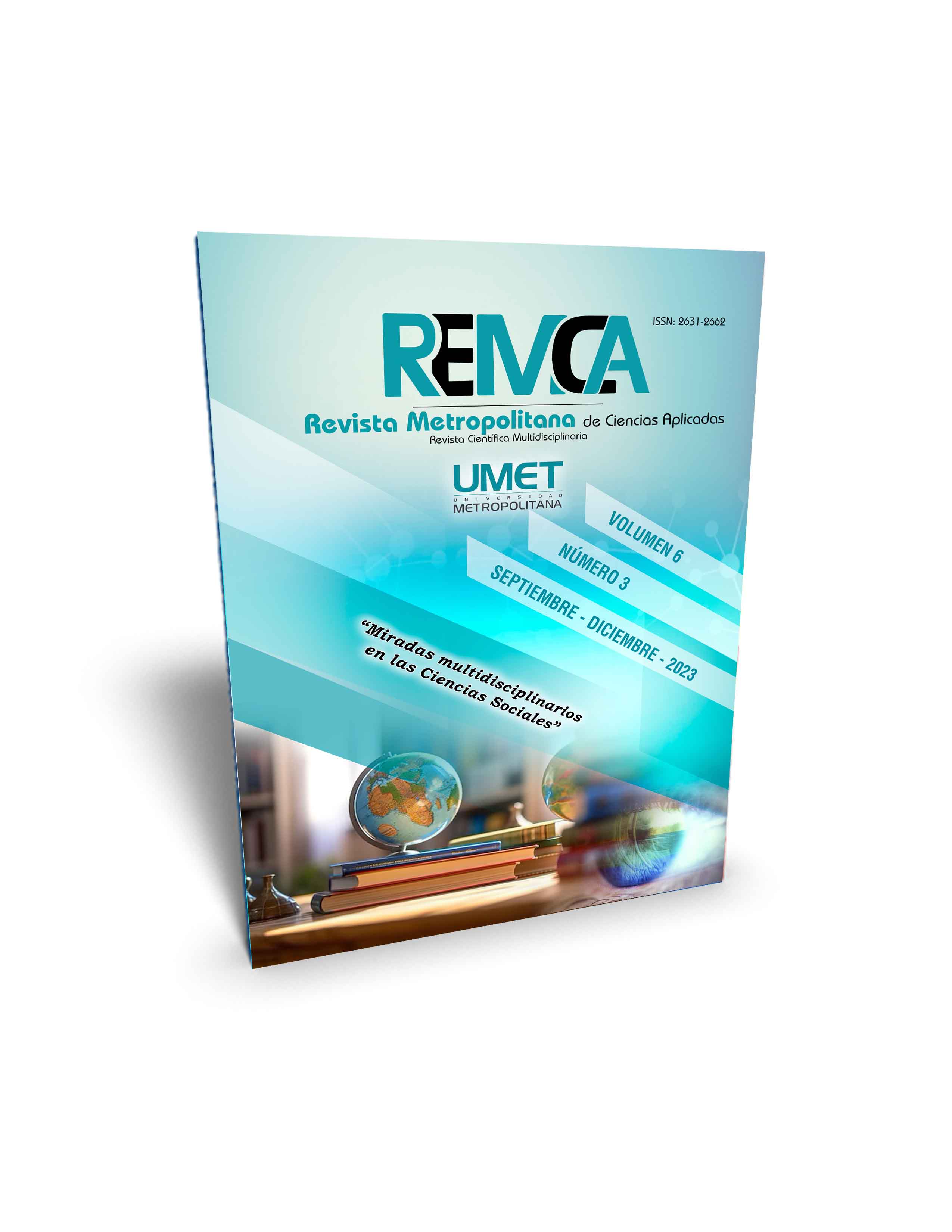The formation of mediators in Ecuador and the gender perspective
DOI:
https://doi.org/10.62452/qd5khk64Keywords:
Conflicts, stereotypes, gender, mediation, gender perspectiveAbstract
This article is intended to thoroughly analyze the gender perspective as a relevant aspect with regard to both the training of mediators and the mediation process in Ecuador. Based on research with a qualitative approach, in light of a documentary, logical-historical and exegetical review, this research paper also proposes creative conflict transformation in terms of restorative justice so as to promote a change in the social paradigm, based upon the search for new ways to build agreements that overcome gender stereotypes. This research article concludes by stating the fact that it is the responsibility of those who carry out the mediation process and the training of future mediators to instruct them in the use of the appropriate techniques and tools, so that this process is carried out with equality and equity, by putting aside stereotypes, to achieve peace processes that are more inclusive and effective in Ecuador.
Downloads
References
Álvarez, M. (2022). La paz como instrumento para lograr sociedades justas, pacíficas e inclusivas (ODS 16 AGENDA 2030). Estudios de Deusto: revista de Derecho Público, 70 (1), 193-220.
Bleichmar, E. (1997). El feminismo espontáneo de la histeria. Distribuciones Fontamara, S. A.
Consorti, P. (2013). Gestión de los conflictos y mediación social en Italia. Política y sociedad, 50(1), 99-111.
Ecuador. Asamblea Nacional Constituyente. (2008). Constitución de la República del Ecuador. Registro Oficial No. 449. https://www.oas.org/juridico/pdfs/mesicic4_ecu_const.pdf
Ecuador. Congreso Nacional. (2006). Ley de Arbitraje y Mediación. https://www.funcionjudicial.gob.ec/www/pdf/mediacion/Ley%20de%20Arbitraje%20y%20Mediacion.pdf
Entelman, R. F. (2002). Teoría de conflictos (Vol. 1). Gedisa.
Folberg, J., Taylor, A. (1996). Mediación: resolución de conflictos sin litigio. Editorial Limusa, SA.
Gauché-Marchetti, X., Domínguez-Montoya, Á., Fuentealba-Carrasco, P., Santana-Silva, D., Sánchez-Pezo, G., Bustos-Ibarra, C., …& Sanhueza-Riffo, C. (2022). Juzgar con perspectiva de género. Teoría y normativa de una estrategia ante el desafío de la tutela judicial efectiva para mujeres y personas LGBTIQ+. Revista Derecho del Estado, (52).
Gorjón Gómez, G. D., & Sauceda Villeda, B. (2018). Justicia restaurativa, una herramienta de paz en la resolución de conflictos comunitarios. Caso Nuevo León. Política criminal, 13(25), 548-571.
Lamas, M. (1986). La antropología feminista y la categoría "género". Nueva antropología, 8(30), 173-198.
Martín, A. (2008). Antropología del género: culturas, mitos y estereotipos sexuales. Cátedra.
Organización de Estados Iberoamericanos. (2008). Reglas de Brasilia sobre acceso a la justicia de las personas en condición de vulnerabilidad. https://www.acnur.org/fileadmin/Documentos/BDL/2009/7037.pdf
Organización de las Naciones Unidas. (2012). Directrices de las Naciones Unidas para una mediación eficaz. https://peacemaker.un.org/sites/peacemaker.un.org/files/GuidanceEffectiveMediation_UNDPA2012%28spanish%29_0.pdf
Organización de las Naciones Unidas. (2002). Gender mainstreaming an overview. https://www.un.org/womenwatch/osagi/pdf/e65237.pdf
Parkinson, L. (2005). Mediación familiar. Teoría y Práctica: Principios y estrategias. Gediza Edit.
Putassi, L. (2011). La igualdad en espera: el enfoque de género. Lecciones y ensayos, 89, 279-298.
Santa Cruz, I. (1992). Sobre el concepto de igualdad: algunas observaciones. Isegoría, (6), 145-152.
Segato, R. (2018). Contra-pedagogías de la crueldad. Prometeo Libros.
Downloads
Published
Issue
Section
License
Copyright (c) 2023 Sara Nohemí Maldonado-Changoluisa, Sabina Lorena Gamboa-Vargas (Autor/a)

This work is licensed under a Creative Commons Attribution-NonCommercial-ShareAlike 4.0 International License.
Authors who publish in Revista Metropolitana de Ciencias Aplicadas (REMCA), agree to the following terms:
1. Copyright
Authors retain unrestricted copyright to their work. Authors grant the journal the right of first publication. To this end, they assign the journal non-exclusive exploitation rights (reproduction, distribution, public communication, and transformation). Authors may enter into additional agreements for the non-exclusive distribution of the version of the work published in the journal, provided that acknowledgment of its initial publication in this journal is given.
© The authors.
2. License
The articles are published in the journal under the Creative Commons Attribution-NonCommercial-ShareAlike 4.0 International License (CC BY-NC-SA 4.0). The terms can be found at: https://creativecommons.org/licenses/by-nc-sa/4.0/deed.en
This license allows:
- Sharing: Copying and redistributing the material in any medium or format.
- Adapting: Remixing, transforming, and building upon the material.
Under the following terms:
- Attribution: You must give appropriate credit, provide a link to the license, and indicate if any changes were made. You may do this in any reasonable manner, but not in any way that suggests the licensor endorses or sponsors your use.
- NonCommercial: You may not use the material for commercial purposes.
- ShareAlike: If you remix, transform, or build upon the material, you must distribute your creation under the same license as the original work.
There are no additional restrictions. You may not apply legal terms or technological measures that legally restrict others from doing anything the license permits.




